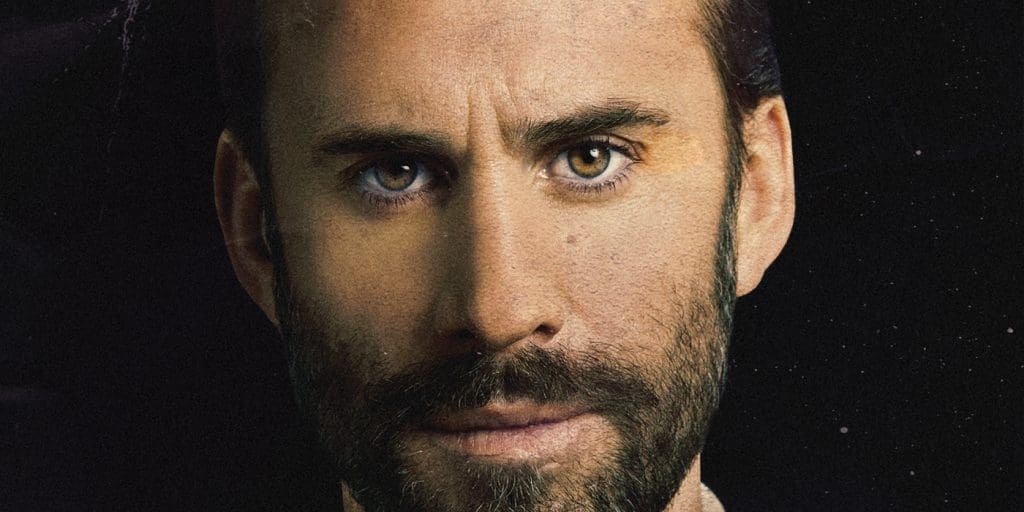The Handmaid’s Tale
The Handmaid’s Tale, written by Margaret Atwood, was released as a TV show by network, Hulu, last year. Haunting, vivid, chilling and powerful, this show has reached global acclaim around the world. With such a good cast too, it’s no surprise there’s been so much hype.
Big names like Elizabeth Moss (the timid Offred) and Joseph Fiennes (the Commander Fred Waterford) don the politically white-hot plot and fill the screen with nail-biting acting skill. Born in 1970, Fiennes was an English screen and stage actor since he could walk, switching between drama school and the screen throughout childhood. His first major film appearance was opposite Helen Mirren in the 1988, A Month in the Country. Over the years, he’s won several BAFTAs, Teen Choice Awards and Screen Actors Guild’s. Oh, and did I also mention his twin brother is Lord Voldemort? We talk to him about the success and power of The Handmaid’s Tale and the reaction he gets from audiences.
Do you think the Commander feels a sense of remorse for the decisions he makes as a powerful man in Gilead?
Yes, in a certain way…his position, a very fundamentalist position at that, is to redress the moral decay in the world as he sees it…it’s about resetting that compass and in doing so he is very much aware there can be painful sacrifices.
I think what’s interesting is that the Commander, albeit fleetingly, is highly aware and conscious of the moral implications connected to the decisions he makes for the good of Gilead. He understands the dilemma and understands there is collateral damage. And that’s what makes him wonderfully human but, he doesn’t spend too much time dwelling on that because the bigger picture is the moral decay that needs to be addressed. And that’s what I love about him…that he’s dark, creepy and complicated, but in his world and in his mind, it’s all about the betterment of mankind. Also, he’s landed in a position and place that’s impossible to back out of!
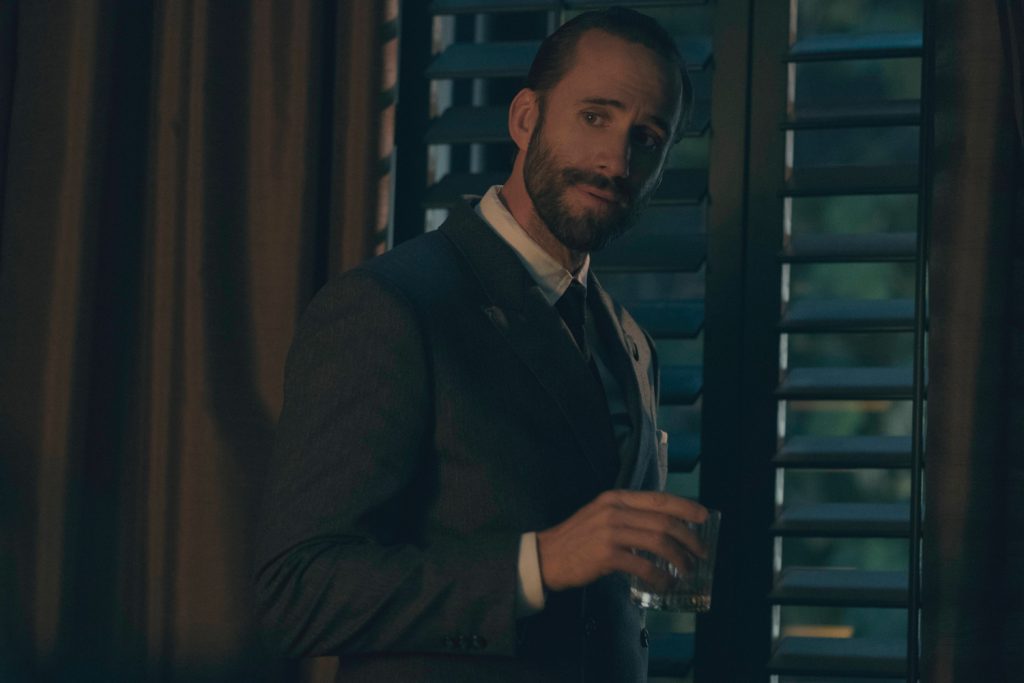
Did you know The Handmaid’s Tale book before and did you think that the show could be a success like this?
I knew that I would be in very talented company coupled with the brilliant narrative of the book, but I wasn’t prepared for the incredible response. I knew of Margaret Atwood’s work, and the book, but I had not read it until after speaking to Bruce Miller. After I read it, I thought it may be tough to adapt to televisionas the book is told in the first person, and it would be interesting to see how a show could connect an audience to Offred in the way the book does. In the book, there’s wonderful moments of what’s all very much inner thoughts. There’s a juggling act with all of those thoughts, some of those thoughts carry over two or three pages, and it’s so deliciously balanced that I thought, “Well, how do you do that in film or television, with the editing, and the cutting, how do you succeed?” That’s the genius of Bruce and his fellow writers and Lizzie Moss. They succeeded in really connecting the audience to that first-person voice, through voice-over, the cinematography and of course from an astonishing performance by Lizzie.
Did you ever think the show would become something that is watched as a comment on the real world? Didyou ever feel the show had that kind of power?
I think The Handmaid’s Tale always had that power since it was written over 30 years ago. This extraordinary piece of feminist literature had its fan base then, but TV has given it an enormous reach. We got pretty lucky on converging with the current political climate, which has shown a lot of parallels with the show, and it’s relevance has been very powerful.
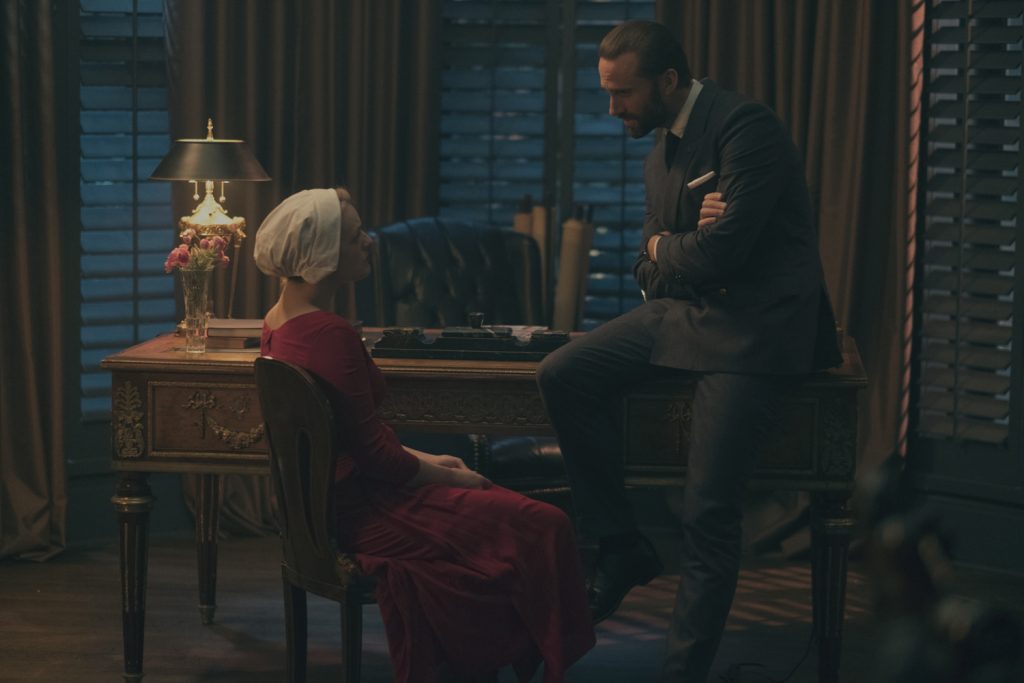
You have to do some horrible things in the show. How do you get into the mindset of the Commander?
I am genuinely affected by some of the things we have to do while acting, primarily the ceremony scene. It’s abhorrent and brutal… but it’s in the book and what’s in the book are
the keys to the Commander’s mindset. I feel he’s genuinely conflicted, but power has a way of corrupting. Its turned the commander into a patriarchal predator.
The Handmaid’s Tale is a show with a lot of high-powered females involved in the creation and production. Also, in general, women are getting a lot more roles and positions in film and television. As a male actor, how do you feel about this?
Well, I love it. I have two sisters that are directors, one’s in documentary, one’s in film. My mother was a writer and a painter, so I’ve been surrounded since childhood by dynamic women and female voices in arts. I have my wife, my two children, the three most important females (and people) in my life. So I think it’s just and right, and it is so important that we are finally having this conversation about the imbalance. But we’ve still got a long way to go. I’ve worked with numerous female directors and writers…not enough…and I’ve been the second lead to many female leads. I feel like I’ve participated in my short journey, in my career, with a good balance in that regard. But it’s a long, long way to go, for sure.
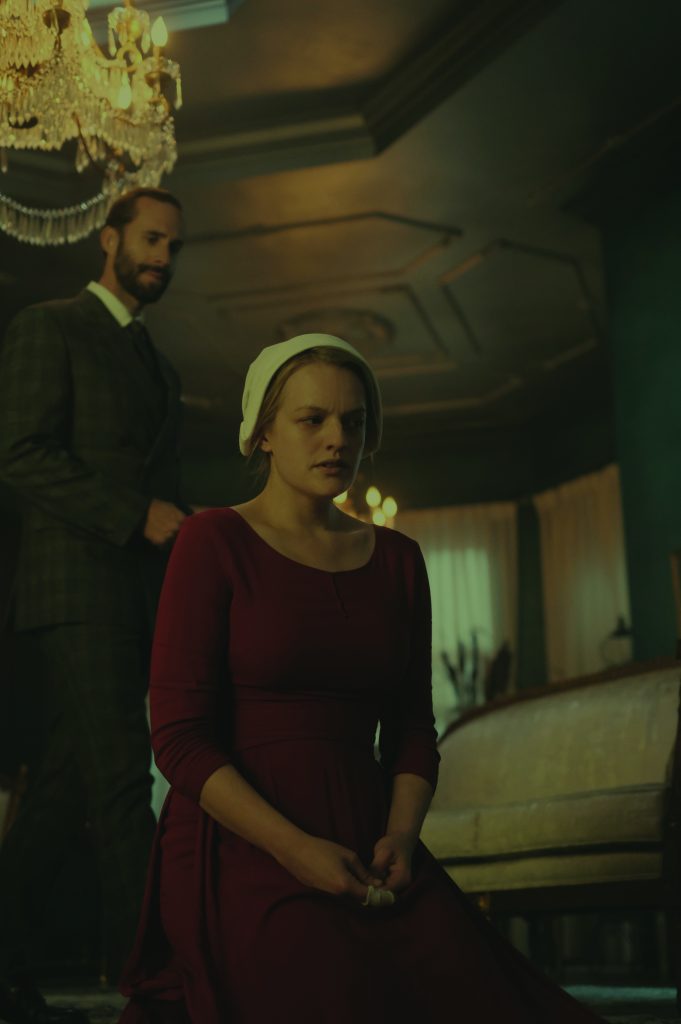
Your character has changed in terms of age from the book to the show. Do you think that adds an extra layer to the character?
Yes, definitely. Season Two is about birth and so much is about fertility in Gilead. The Commander would enjoy a job promotion should they have a child, as well as basking in the social glory. Gilead stands and survives on collecting fertile women. And so the idea that two prime members and architects of Gilead in their prime could be barren is powerful. To be of a fertile age and be unable to have children adds a layer of complexity.
I always seem to be surprised when I see moments that the Commander shows affection and love for Serena. What are your thoughts on that?
I like that you’re surprised and love the idea that Fred still shows love and affection for Serena and although that love has diminished there is still moments of reflection and tenderness towards her. It makes for a more complex relationship. He invariably shows affection after being brutal or needing her help. In season two, their union becomes quite strong again.
Do you think Serena’s giving up power for affection? Or do you think the Commander’s taking her power because he’s not that original or not that visionary, and she’s really the one with all the visions?
Gilead (and what it stands for) has taken her power and voice, and Fred stood by while it happened. I think it’s right to say that Fred is somewhat insecure about Serena being a true visionary, but it was this visionary he fell in love with. I think it’s more to do with her having a voice at a time where he’s now been given a new position. He is now the Commander. Adding to that, I think Gilead in giving great power to Fred, has produced in him a sense of almost patriarchal invincibility that he’s not prepared to relinquish in any way to Serena.
It’s really easy to connect with the female characters in The Handmaid’s Tale because we want better for them, with the Commander being the antagonist, is there any possible connection the viewer can have with your character?
Like in the book, the antagonist Fred is thinly drawn as the important exploration is the journey and inner life of Offred. It’s much the same for Fred in the series too. connecting to him without gleaming his back story or inner world is tough, he’s also the face of the regime, the face of what there is to resist and fight against, so having too much connection with him isn’t going to help the journey of the protagonists. But having said that my job is to find that connection for an audience through making him human. Making him fallible and aware of those fallibilities, making him cognizant to the fallout on people from the decisions he makes for the good of Gilead. So that, I hope, makes him human. And in that regard, you can feel there’s some connection.
Is it a fun set to work on?
It is very concentrated, but it is fun. We all get along and have fun off camera or you’d never make it through a season!
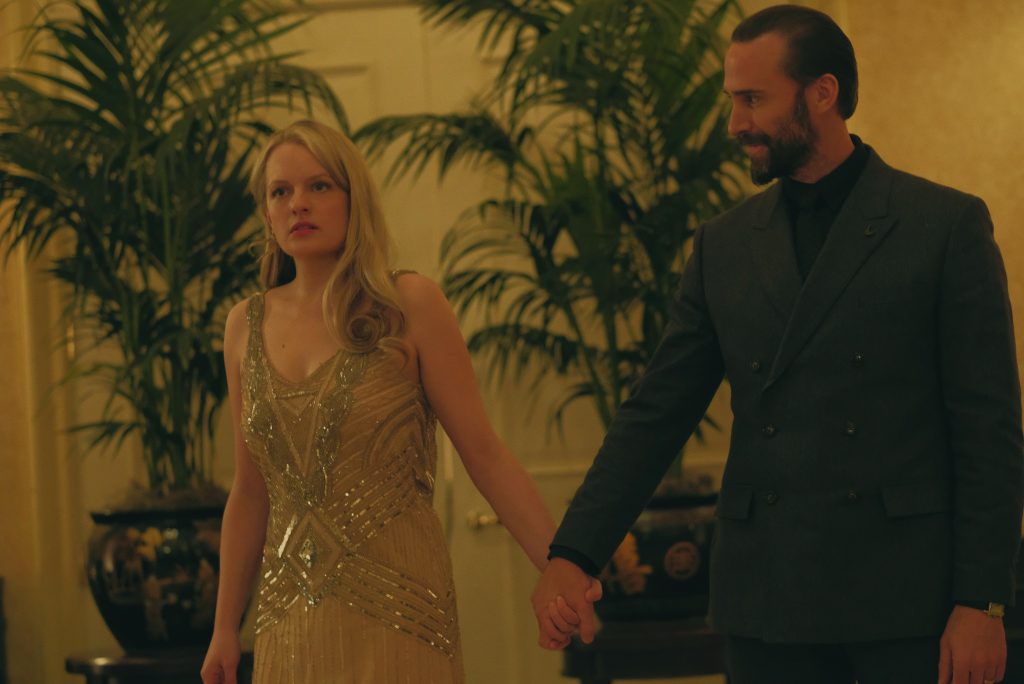
The Handmaid’s Tale is now showing on Lightbox

